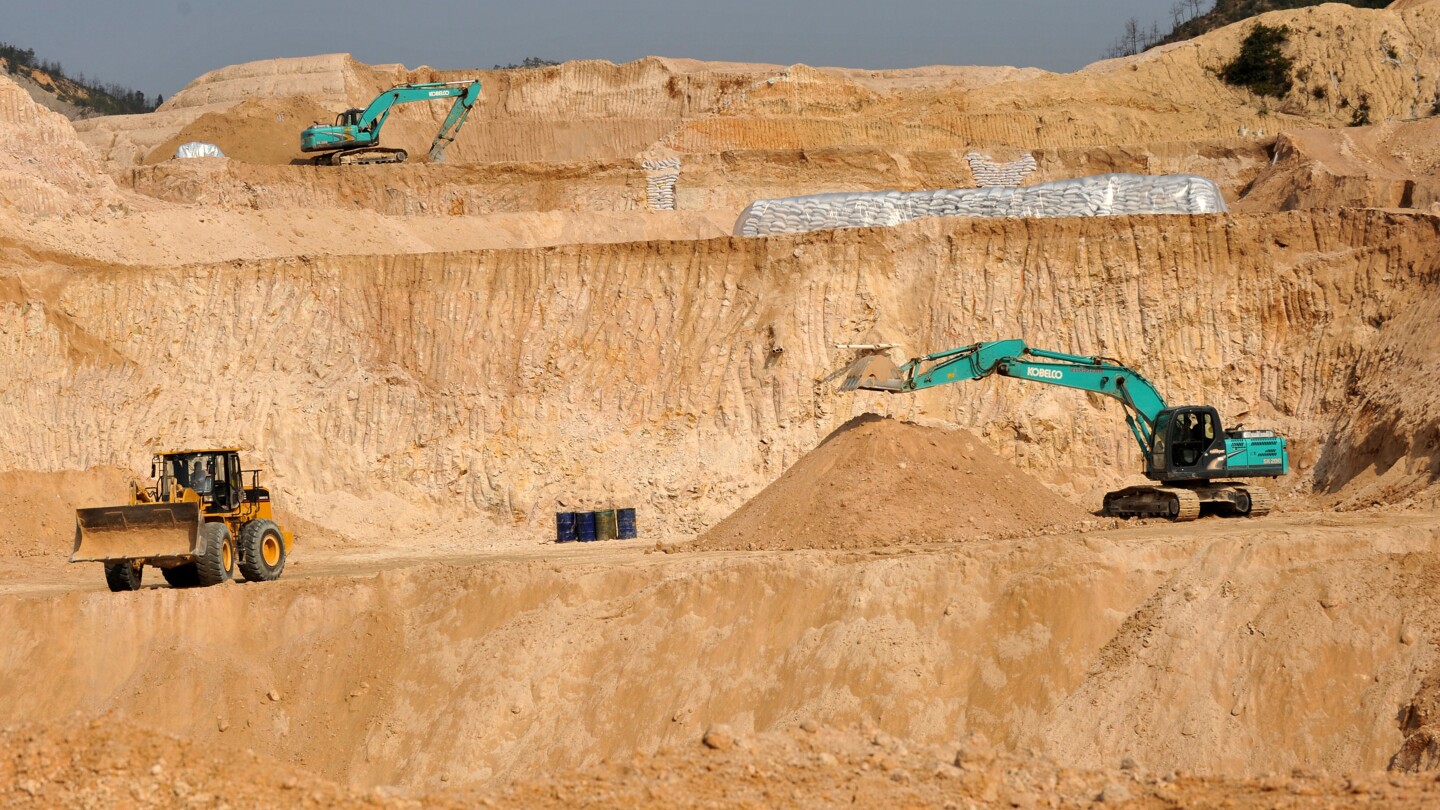Trade agreement with China opens door for US rare earth production
China’s promise to delay its newest restrictions on the export of the rare earths that are crucial to many high-tech products for one year as part of a trade agreement President Donald Trump secured creates an opportunity for the U.S. and its allies to bolster their own production and processing capabilities. But it will be hard to undercut China’s stranglehold on the market.
The restrictions China imposed on rare earths this year have been a key issue in the trade talks between Beijing and Washington. Trump responded angrily to China’s latest rules with a threat to impose an additional 100% tariff on all Chinese imports, but he has since dropped that demand as part of this agreement.
This week’s deal will delay the regulations that would have required foreign companies to get special approval to export items that contain even small traces of rare earths elements sourced from China even if those products were made elsewhere by foreign companies, but it doesn’t eliminate restrictions that were imposed in the spring after Trump imposed his tariffs.
These critical minerals are needed in a broad range of products, from jet engines, radar systems, electric vehicles and robots to consumer electronics including laptops and phones. China accounts for nearly 70% of the world’s rare earths mining. It also controls roughly 90% of global rare earths processing.
Neha Mukherjee, a rare earths analyst at Benchmark Mineral Intelligence, said the one-year delay in China’s new rare earth export controls that were announced earlier this month provides some short-term relief that will allow exports to return to a more normal level, but it doesn’t change the broader strategic picture, and it’s important for America and its allies to continue investing in the industry.
“This move appears more tactical than structural, a pause to stabilize trade relations with the U.S. rather than a policy reversal,” Mukherjee said. “This is a temporary window for the U.S. and allies to accelerate diversification before controls likely return.”
The White House has made it a priority to revive and expand the domestic critical minerals industry while also seeking supplies of these elements from allies. The Pentagon agreed to invest $400 million in rare-earth producer MP Materials and promised to ensure every magnet made at its massive new plant is bought and set a minimum price for its neodymium and praseodymium products for a decade.
Ian Lange, who is an economics professor who focuses on rare earths at the Colorado School of Mines, said he thinks the U.S. and its allies can make significant progress in a year’s time to lessen China’s dominance of the rare earths market.
There are a number of promising efforts already underway. Noveon will continue to produce rare earth magnets at its plant in Texas, and MP Materials and USA Rare Earth are both scheduled to begin producing magnets at their plants over the next year. And starting next year MP also plans to begin processing the heavy rare earths China had restricted in the spring at the only operating U.S. rare earths mine in Mountain Pass, California.
And Lange said that other efforts to recycle rare earths and begin producing them as byproducts at existing steel and zirconium mines may also start to pay off. The United States’ recent agreement with Australia will also help provide additional materials to counter China.
China has shown little sign of being willing to allow rare earth exports to defense contractors, which is concerning given the national security implications. But military demand for rare earths is relatively small, so America might be able to supply its needs by prioritizing rare earths from other sources for use in fighter jets, guided missiles and nuclear submarines.
Industry executives have said this needs to be the “Manhattan Project moment” for rare earths if the United States is ever to break China’s grip over them.
“We’re moving into overtime with China and they currently have the ball on our 10-yard line. Our best defensive move is to tie together our global refining and supply partnerships with allies and swiftly invest in innovation in the United States,” said Wade Senti, president of the U.S. permanent magnet company AML.
Noveon Magnetics CEO Scott Dunn said the details of “how China implements this suspension will matter greatly, and with the deal limited to one year, it’s clear the U.S. must use this window to strengthen domestic capabilities and reduce long-term exposure to geopolitical risk.”
Lange said he is optimistic overall because the United States isn’t starting from zero, and if these efforts continue at their current pace, America should be much better off in a year even if some of the things the government is investing in will take several years to become a reality.
“Because in a year, we don’t really care what they do. We’ve got an independent supply chain. At least I don’t think we’re too far from that,” Lange said.
___
Associated Press writer Didi Tang contributed to this report from Washington.


